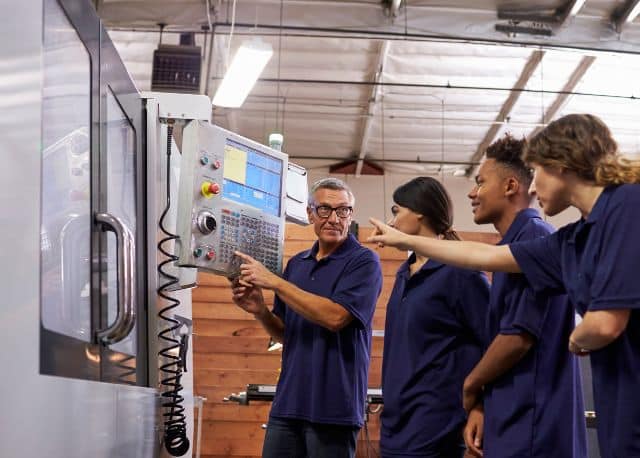You’ve applied for your apprenticeship, been appointed to an exciting new role and are about to start your placement. It’s an exciting time, and what’s to come – starting with your apprenticeship training – is sure to be challenging, fun and rewarding.
Encapsulating both on-the-job training (giving you skills you’ll use for the rest of your career) – and off-the-job training (gaining the actual qualification) and all the while getting paid to do it, apprenticeships are surely one of the best post-compulsory education and training pathways you can choose.
But with it being a pivotal moment in your career – and likely the most important step so far – it’s vital that you now make the most of this big opportunity, firstly by gaining maximum benefit from the training you receive as part of the programme.
Below, we outline our five key tips to help you get the most out of your apprenticeship training:
1. Don’t be afraid to ask questions
Apprenticeships are primarily a learning process aimed at giving you the skills needed to be fully competent in a job. It’s likely that during your training, there will be times when you need help, don’t understand something or are unsure exactly what to do.
In these situations, it’s in both yours and your employer’s interest for you to question and be sure you get to grips with what’s being asked of you – what you’re doing, why you’re doing it and how to do it. We all learn in different ways, so don’t be afraid to ask for help if you need it, and remember: there’s no such thing as a silly question.
2. Keep a diary of what you’re learning
On the work side of the apprenticeship, be sure to keep a detailed diary or logbook of what you’re learning and the skills you are developing.
This will help you gather all the evidence you need to prove your skills on the training side.
Days, weeks and months later, it will be easy to forget when and why you learned something if you don’t make a note when it’s still fresh in your mind.
And keeping a diary also means that if you get stuck on a particular task, you will be able to recall the exact problem when asking your mentor later on.
3. Maintain a positive and enthusiastic mindset
Study time and off-the-job training isn’t everyone’s idea of fun – but keep your eyes on the bigger picture and what succeeding in the apprenticeship qualification will enable you to do in the future.
Making up 20% of your total working hours, it’s an important part of the process, so embrace it, stay positive and give it your all.
When you’re in the workplace, Options Skills advises that confidence is key and practice makes perfect – so when your mentor asks you to complete a task, relish the opportunity. After all, the more tasks you carry out, the more you’ll learn and develop skills in your chosen area of work.
What’s more, senior members of staff will take note and remember you – and likely be impressed – if you take a positive approach to tasks given to you.
4. Organise your time and resources to stay on the front foot with training
Make sure you don’t end up leaving things until the last minute meaning it’s too late to give it your best effort.
Be aware – your employer will quickly notice if you’re not keeping your diary in order and staying on top of tasks, so being reliable and punctual is also crucial.
As well as timings, that goes for equipment too – make sure any resources you are put in charge of such as tools, machinery or even pens and paper are taken good care of. This will show your employer professionalism and competency.
For example, if a gas engineer arrived at a house with a messy van or without the right tools, it would set a bad first impression and certainly wouldn’t fill the customer with confidence that the job was going to be carried out to the highest of standards.
These may seem like minor aspects to stay on top of but alleviating bad habits early on and doing the small things well will go a long way to helping you complete a successful placement.
5. Learn from the people around you
The last of our five tips, but in no way the least valuable, is the importance of learning from other employees. Glendale Services advises that you observe the way they work, interact with one another and speak to clients – and that you can learn a lot by both listening to and watching what goes on in the workplace.
There’s no doubt you can benefit from the experience of other colleagues, apprentices, training team and of course your workplace mentor – so don’t be afraid to ask them about their experiences and examples of how they have overcome challenges that might apply to you.
Equally important is to not get intimidated by those colleagues either. Instead, use their expertise to your advantage.
A person doing a task that you have not yet mastered or are struggling to get to grips with has probably been doing that role or similar for the last five, seven or even 10 years.
Once again, you are there to learn from them. So, take your time, don’t put undue pressure on yourself, and pick up as much as you possibly can from the experts.
Don’t forget that you’re an employee and an important member of the team too – you’re just at a different stage of your journey.


